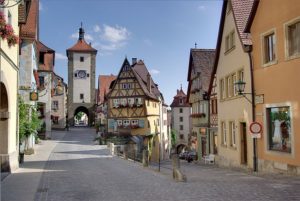
People are so used to the modern dysfunctional State that they do not have a proper idea of what a true State is. The following description describes what can be called an organic State that corresponds to what a State should be.
As the supreme power of last appeal, an organic State gives unity and a framework to all the social units in a society. Far from assuming the modern State’s monopoly of supreme power, the organic State does not smash or reduce these lesser groups to subservience. Rather, it is the preserver and protector of the overall order upon which they depend. Far from concentrating authority, this State encourages its wide distribution by recognizing authority as it exists in lesser groups so each might accomplish its proper functions more easily.
“The supreme authority of the State ought, therefore, to let subordinate groups handle matters and concerns of lesser importance, which would otherwise dissipate its efforts greatly,” writes Pius XI of subsidiarity. “Thereby the State will more freely, powerfully, and effectively do all those things that belong to it alone because it alone can do them: directing, watching, urging, restraining, as occasion requires and necessity demands.”[ref]Pius XI, Quadragesimo Anno, No. 80.[/ref]
[like url=https://www.facebook.com/ReturnToOrder.org]
As a result of this “parceling out of sovereignty,” there can be no modern masses since there is no single monolithic authority. Each individual conserves a unique character, subject to those overlapping levels of authority that both define and correspond to a special identity, function, and position in society.


